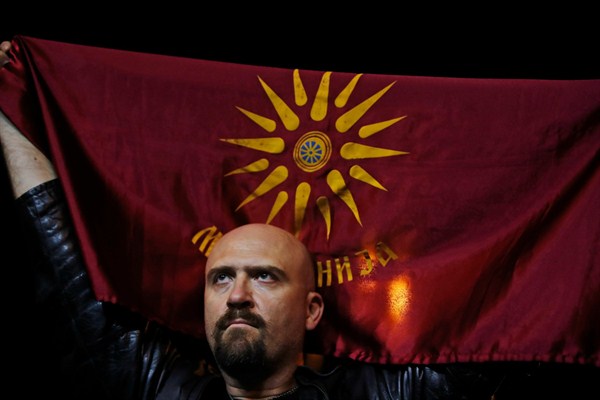History has indelibly branded the Balkans as the battleground of empires, a fault line where great powers clash. That pattern came into full view again this weekend, when Macedonians voted in a referendum on whether or not to change their country’s name in order to ease its accession into the European Union and NATO, a question that has drawn the interest and involvement of Russia.
The referendum yielded a head-snapping outcome. First, the returns showed overwhelming approval, with some 90 percent voting to change the country’s name. But then the tally showed that voter turnout was just 36 percent, well below the required 50 percent threshold. And so, the referendum failed despite the resounding “yes.”
The referendum revolved around a subject that has troubled Greece enough to block Macedonia from ever joining the EU and NATO since the moment it became an independent nation with the disintegration of Yugoslavia in the early 1990s. Greece worried about the young state potentially one day laying a claim over its own Macedonia, which is also the name of a province in northern Greece. But in an agreement reached in June between Skopje and Athens, Macedonian leaders agreed to rename their country the Republic of North Macedonia, clearing a path to membership in the premier organizations of the West.

